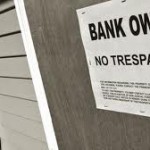Analysis: New Provision in ‘Compromise Bill’ Harms Homeowners, Victims of Illegal Foreclosure
Additions create major barriers to negotiations through mail-only process, bar homeowners from reclaiming homes illegally seized and sold to third parties.
BEACON HILL – New provisions in the recently-voted Act to Prevent Unlawful and Unnecessary Foreclosures will impose an undue hardship on homeowners and victims of illegal foreclosure, according to legal experts and housing advocates. Analysis of new sections inserted by a conference committee reveals significant flaws. They create major barriers to mortgage negotiations between homeowners and banks as well as newly barring many homeowners from reclaiming their illegally-seized homes. After an effort to remedy these issues failed in the Senate, advocates now turn to Governor Deval Patrick to take action on behalf of Massachusetts homeowners.
“Make no mistake about it, these new provisions will have a very real, very negative impact on numerous homeowners across the commonwealth.” Eloise Lawrence of the Harvard Legal Aid Bureau. “While this bill provides relief for some Massachusetts families, we’re simultaneously reversing significant homeowner protections that have been law for over 150 years in Massachusetts.”
The present bill creates new restrictions that limit homeowners and lenders to negotiate loan modification terms by mail, along with unrealistic deadlines for documents to be prepared, filed, received and returned. For example, a bank conducts a now-mandated analysis of a mortgage, which shows the lender will lose more money by foreclosing than renegotiating loan terms. The financial institution must then contact a homeowner about a loan modification; however, homeowners will have only 30 days to prepare all the necessary modification application documents and have them accepted by the bank. Lenders rarely accept an application as complete on the first attempt; across the country families have had to submit documents an average of six times to be deemed complete. This bill’s negotiation procedures are unworkable for most homeowners.
An additional section inserted at the eleventh hour would deprive homeowners who prove a foreclosure is illegal the ability to obtain a reversal of a foreclosure if bought by a private party. The new provision asserts that a simple affidavit that the bank has the promissory note is all that is necessary to proceed with a foreclosure – trusting lenders, no matter what their history, to abide by what amounts to an honor system in their foreclosure proceedings. Real estate investors are granted broad immunity for their role in the trafficking of illegally-foreclosed homes, allowing them to hold onto properties proven to be seized through fraud.
Even the most significant changes in the bill will offer an ever-dwindling protection to Bay State homeowners. The above-mentioned loss analysis, for example, affects only subprime loans. Federal Reserve figures show less than 30% of Massachusetts foreclosures were of subprime loans in 2009 – and that number is dropping. At best, an estimated 500 families yearly would benefit from the new protection, compared to thousands who will lose a key right to get their home back due to the last-minute legislative change now in front of Governor Patrick.
“Some of the measures headed to the governor’s desk will have serious, harmful consequences if left unchanged,” said Nadine Cohen, managing attorney of Greater Boston Legal Services’ Consumer Rights Unit. “It is imperative that these anti-homeowner provisions be corrected before the bill is signed.”
—–
Friday, July 27, 2012
Contact:
Grace C. Ross, 617-291-5591, maaplinfo@yahoo.com

